Inflammation is the body’s natural response to injury or infection, but when it becomes chronic, it can lead to various health issues, including heart disease, arthritis, and metabolic syndrome. Chronic inflammation is a silent culprit behind many serious health conditions. Incorporating anti-inflammatory foods into your diet is crucial to combat this ongoing issue. Packed with anti-inflammatory compounds and nutrients, vegetables are among the best foods to reduce inflammation.
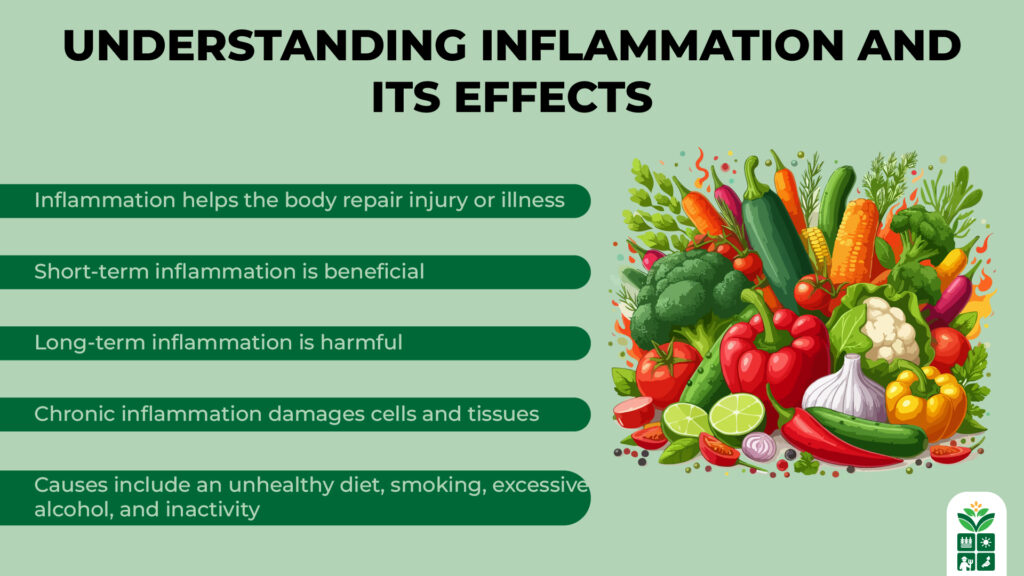
Let’s explore the best vegetables to include in your anti-inflammatory diet to help maintain overall health and well-being.
Best Vegetables for Inflammation
1. Tomatoes
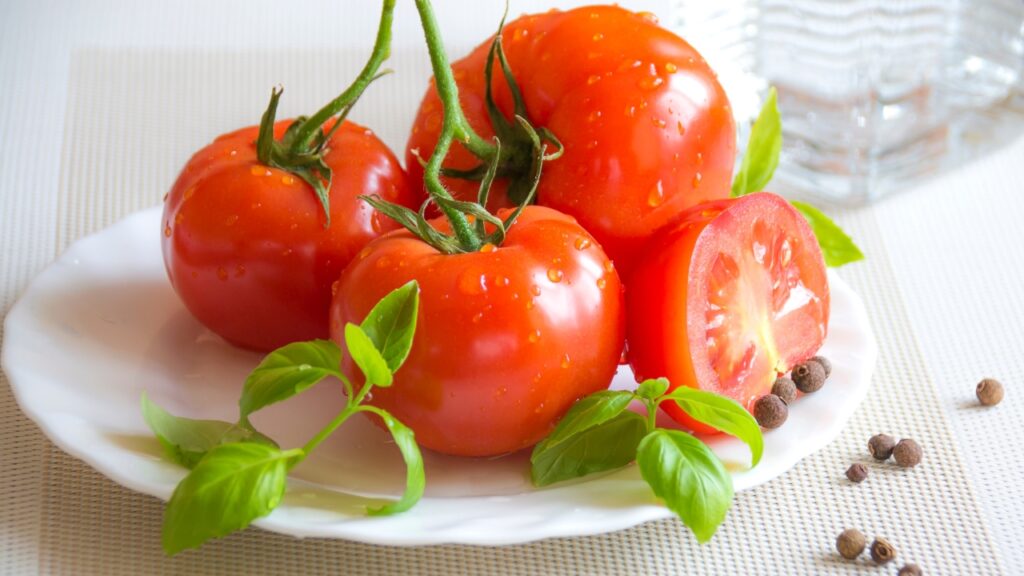
Tomatoes are a cornerstone of the Mediterranean diet, known for their anti-inflammatory properties. They are rich in lycopene, a powerful antioxidant that has been shown to reduce inflammatory markers in the body.
A study published in the Journal of Clinical Endocrinology & Metabolism found that higher levels of lycopene in the blood were associated with lower levels of inflammatory proteins and a reduced risk of chronic diseases like cardiovascular disease and rheumatoid arthritis. Including tomatoes in your daily diet, whether raw, cooked, or in the form of tomato-based sauces, can significantly contribute to reducing inflammation.
In addition to lycopene, tomatoes provide a wealth of other nutrients, including vitamins A and C, potassium, and folate, which collectively support the immune system and overall health. A recent survey revealed that individuals who regularly consumed tomatoes and tomato-based products reported fewer symptoms of inflammatory diseases.
Cooking tomatoes, such as in a hearty tomato soup or sauce, can increase the bioavailability of lycopene, making it easier for the body to absorb and use this potent anti-inflammatory nutrient. So, don’t hesitate to add more tomatoes to your anti-inflammatory diet for a delicious and health-boosting meal.
2. Collard Greens
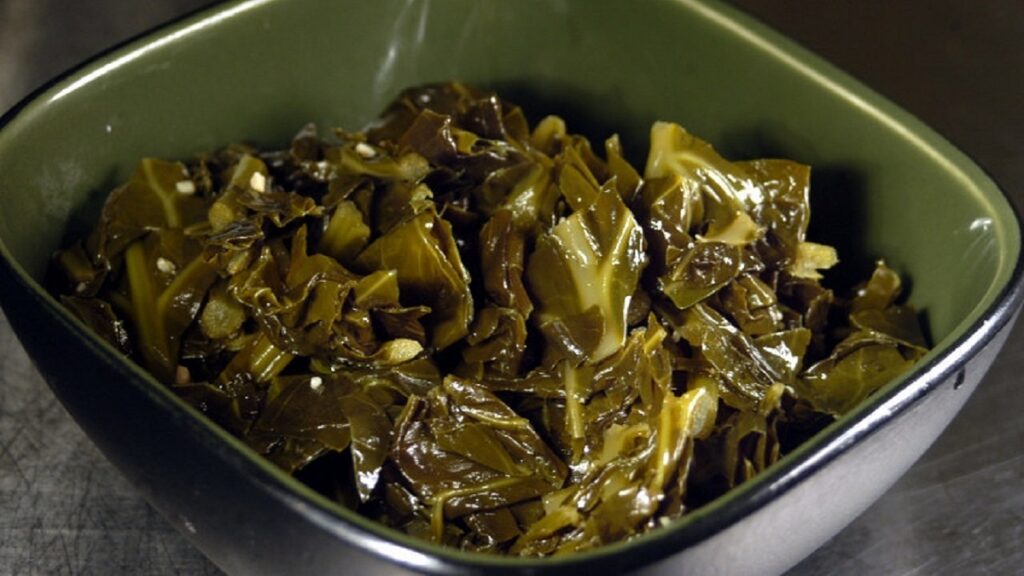
Collard greens are an excellent addition to any anti-inflammatory eating plan. Rich in vitamins K and C, fiber, and antioxidants, collard greens help reduce inflammation and support overall health. These leafy greens are especially high in glucosinolates, which are sulfur-containing compounds that have been shown to decrease the production of inflammatory markers in the body.
A systematic review of observational studies highlighted the benefits of consuming leafy greens like collards, noting a significant reduction in inflammation and associated chronic diseases.
Incorporating collard greens into your diet can be simple and delicious. Whether sautéed with a bit of olive oil and garlic or added to soups and stews, collard greens provide a robust flavor and a plethora of health benefits.
Diets high in leafy greens are linked to a lower risk of chronic inflammation and conditions like heart disease and arthritis. Adding collard greens to your meals is an excellent way to boost your intake of anti-inflammatory nutrients and enjoy a tasty, nutritious dish.
3. Spinach
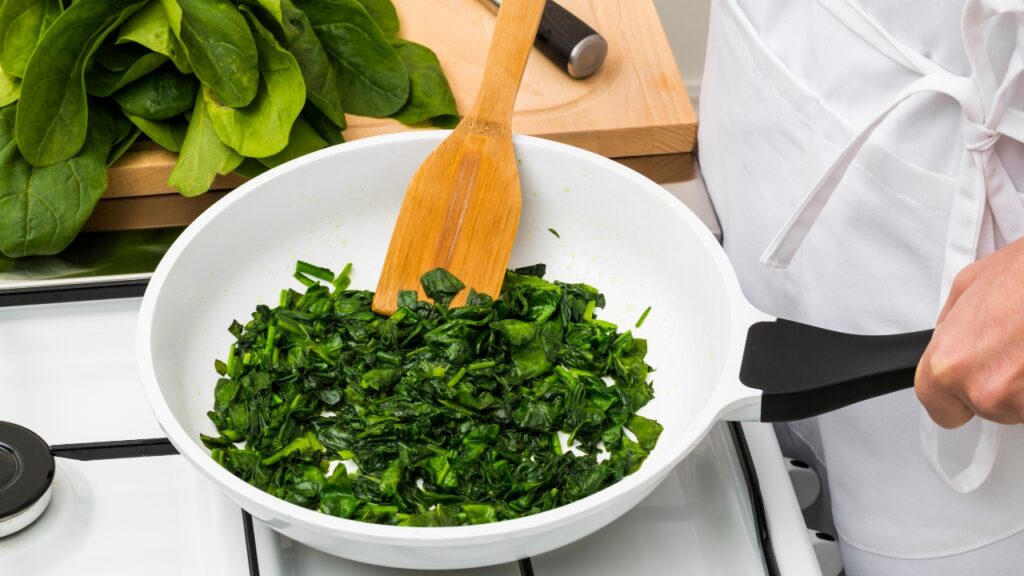
Spinach is a nutritional powerhouse that should be a staple in any anti-inflammatory diet. This leafy green is packed with vitamins A, C, and K, magnesium, and iron. These nutrients play a vital role in reducing inflammation and supporting overall health.
Spinach contains flavonoids and carotenoids, which have potent anti-inflammatory effects. A study published in the Journal of Nutrition found that higher spinach consumption was associated with lower levels of C-reactive protein (CRP).
Spinach is also an excellent source of fiber, which aids in digestive health and can help reduce inflammation in the gut. Including spinach regularly in your meals can help combat inflammation and improve your overall well-being.
4. Kale
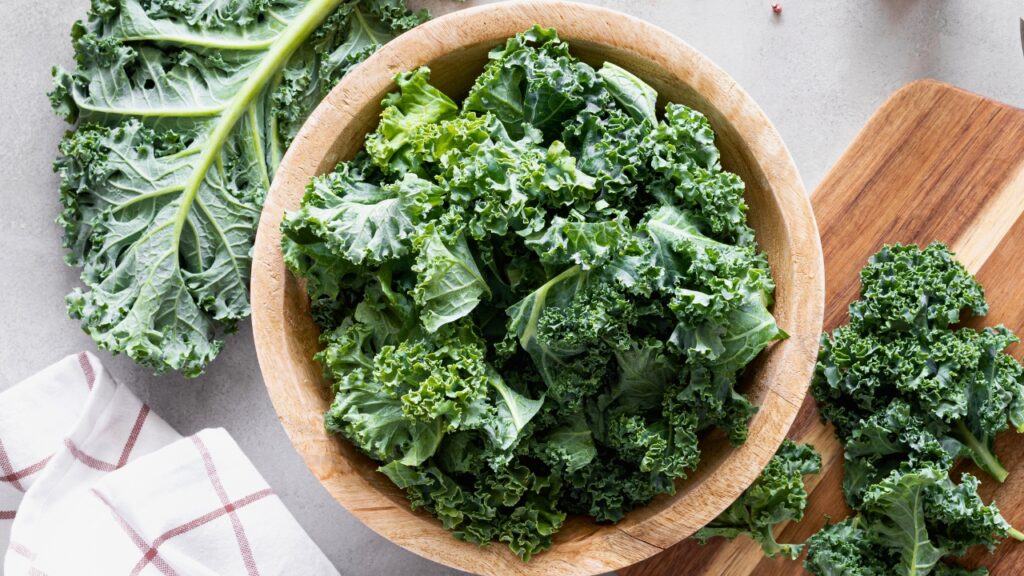
Kale, often hailed as a superfood, reduces inflammation. Rich in vitamins A, C, and K, as well as omega-3 fatty acids, kale helps to combat chronic inflammation and support cardiovascular health.
It contains quercetin and kaempferol, flavonoids that have strong anti-inflammatory properties. These compounds can help reduce the risk of chronic diseases, including heart disease and certain types of cancer.
A recent study found that consuming kale regularly can significantly lower levels of CRP and other inflammatory markers, making it an essential component of an anti-inflammatory diet.
5. Broccoli
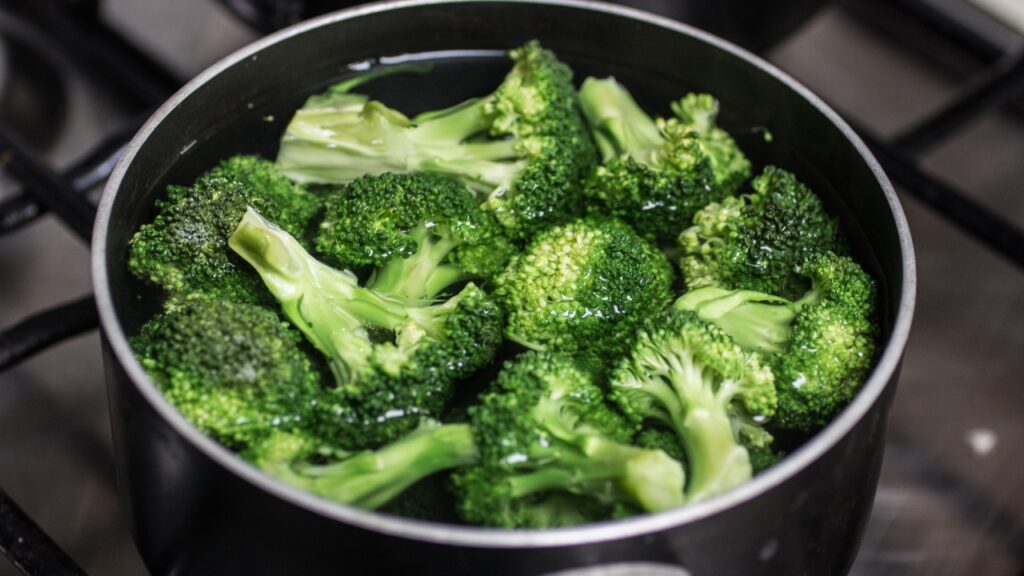
Broccoli is another powerhouse vegetable with significant anti-inflammatory benefits.
It’s rich in vitamins C and K, fiber, and sulforaphane, a compound that has been shown to reduce inflammation and oxidative stress. Studies have indicated that consuming broccoli can help lower the risk of chronic diseases such as cardiovascular disease by reducing levels of inflammatory proteins in the body.
Whether steamed, roasted, or added to stir-fries, broccoli retains its nutritional value and provides a satisfying crunch. Recent research suggests that incorporating broccoli into your diet can help reduce inflammation and support overall health, making it an excellent choice for anyone looking to enhance their anti-inflammatory diet.
6. Bell Peppers
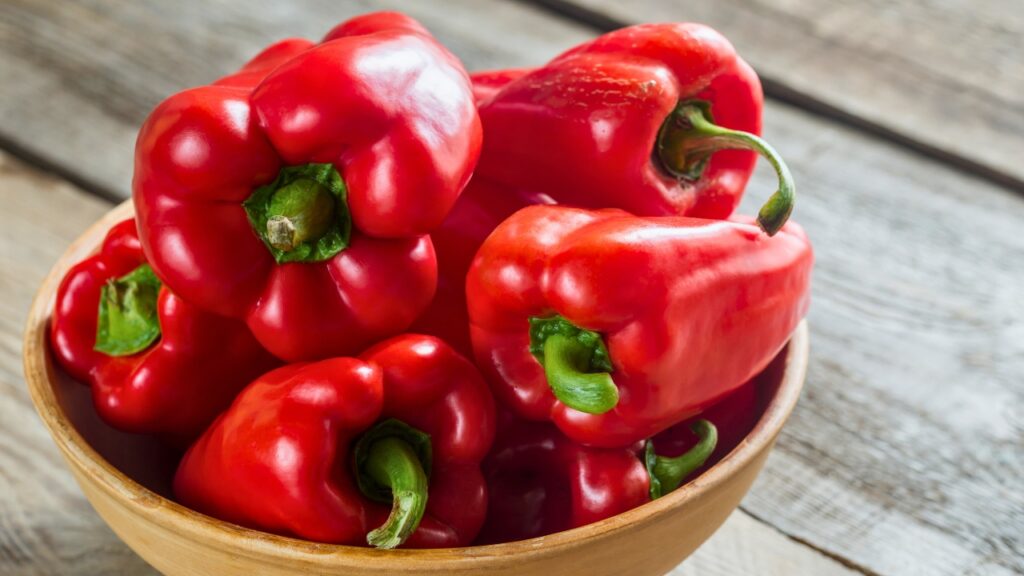
Bell peppers, especially the brightly colored red and yellow varieties, are rich in antioxidants and vitamins that help fight inflammation. They are an excellent source of vitamin C and beta-carotene, both of which have anti-inflammatory properties.
Incorporating bell peppers into your diet is easy and delicious. They can be enjoyed raw in salads, roasted as a side dish, or sautéed with other anti-inflammatory foods. The high vitamin C content in bell peppers helps reduce inflammation and supports a healthy immune system. Adding bell peppers to your meals can provide a burst of flavor and a significant boost to your anti-inflammatory efforts.
7. Brussels Sprouts
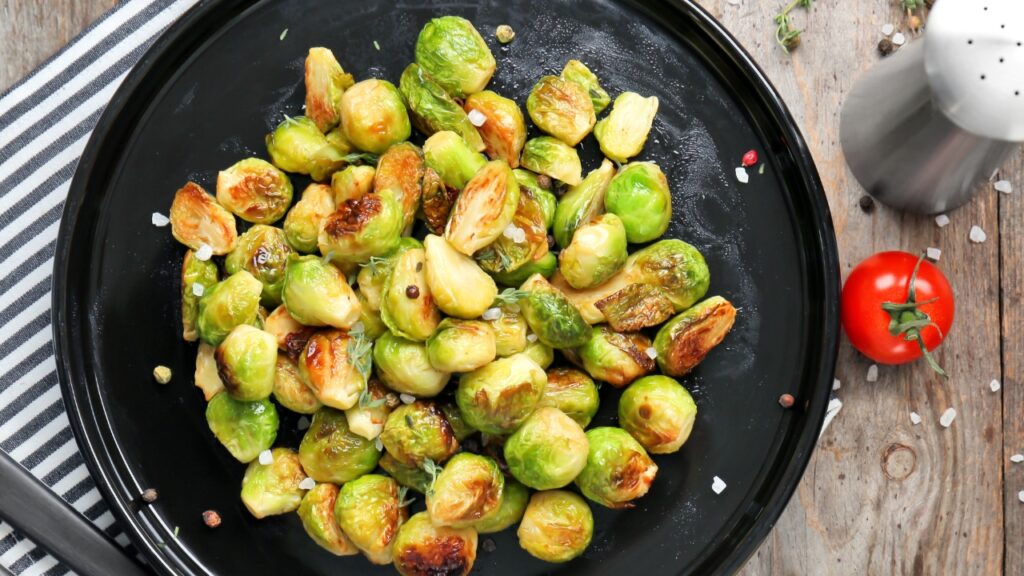
Brussels sprouts are a cruciferous vegetable with powerful anti-inflammatory benefits. They are rich in vitamins C and K, fiber, and glucosinolates, which have been shown to reduce inflammation and protect against chronic diseases. Consuming cruciferous items like Brussels sprouts can significantly lower blood levels of inflammatory markers.
Try roasting them with a drizzle of olive oil and a sprinkle of salt and pepper. This cooking method enhances their natural sweetness and provides a delicious, crispy texture. Regularly including Brussels sprouts in your diet can help reduce inflammation and improve your overall health.
8. Cauliflower
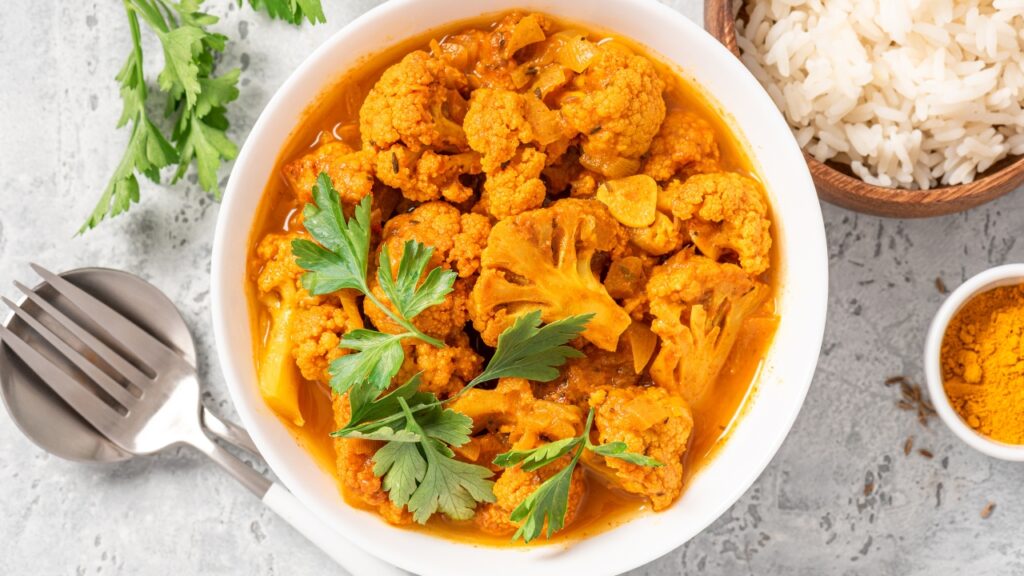
Cauliflower is another cruciferous vegetable that boasts impressive anti-inflammatory properties. It’s rich in vitamins C and K, fiber, and antioxidants that help combat inflammation and promote overall health. Research has shown that compounds in cauliflower can help reduce oxidative stress and inflammation, making it a valuable addition to an anti-inflammatory diet.
There are many ways to incorporate cauliflower into your meals. You can enjoy it steamed, roasted, or even mashed as a low-carb alternative to potatoes. Cauliflower rice is another popular option that can be used in place of regular rice in various dishes.
9. Garlic
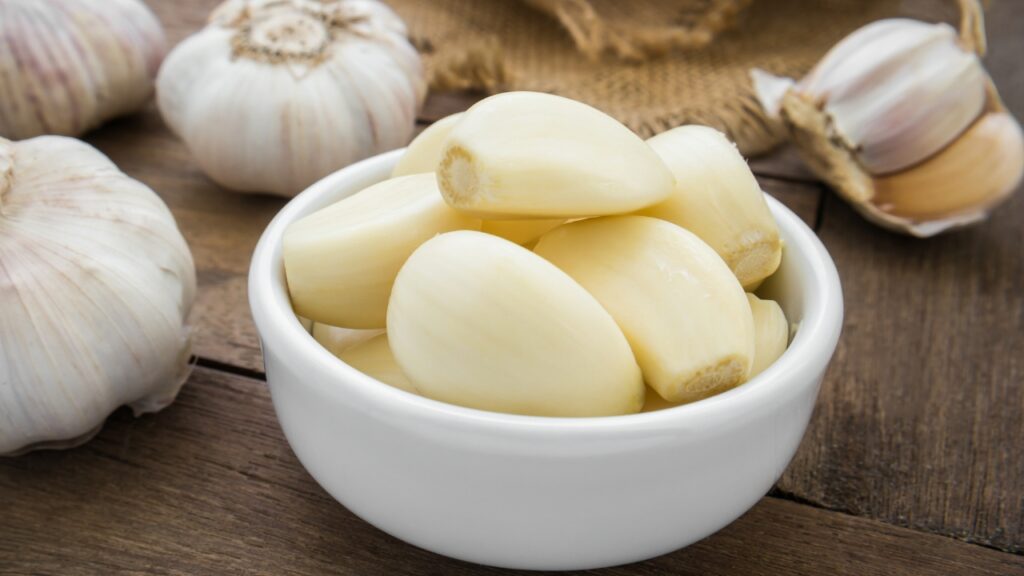
Garlic is well-known for its numerous health benefits, including its ability to fight inflammation. It contains sulfur compounds, such as allicin, which have potent anti-inflammatory effects. Studies have shown that garlic can help reduce the production of inflammatory cytokines and lower the risk of chronic diseases like cardiovascular disease and arthritis.
Raw garlic can also be added to salads and dressings for an extra health boost.
10. Beets
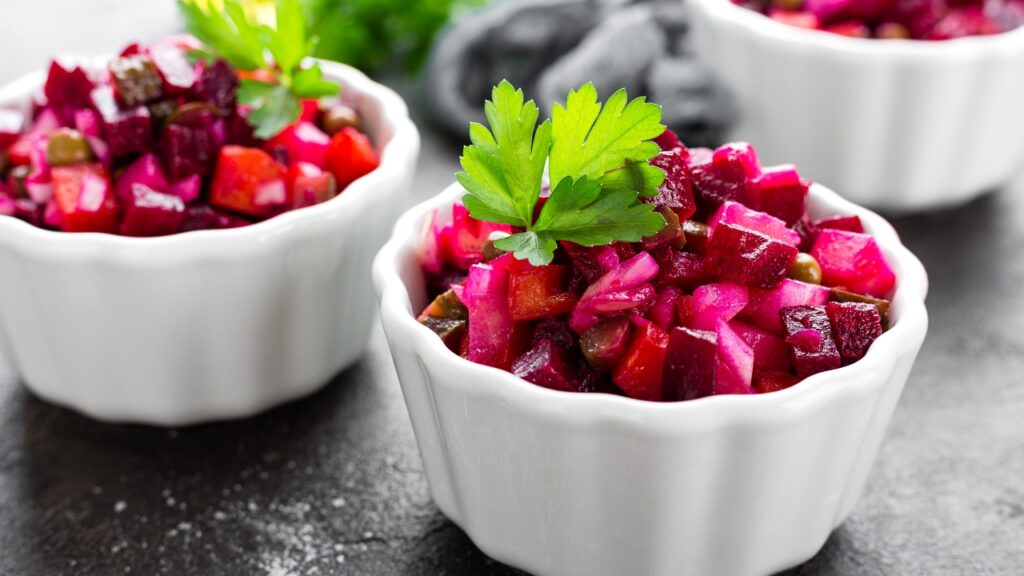
Beets are vibrant root growths that offer significant anti-inflammatory benefits. They are rich in betalains, antioxidants that have been shown to reduce inflammation and oxidative stress. Beet juice can lower blood pressure and reduce markers of inflammation.
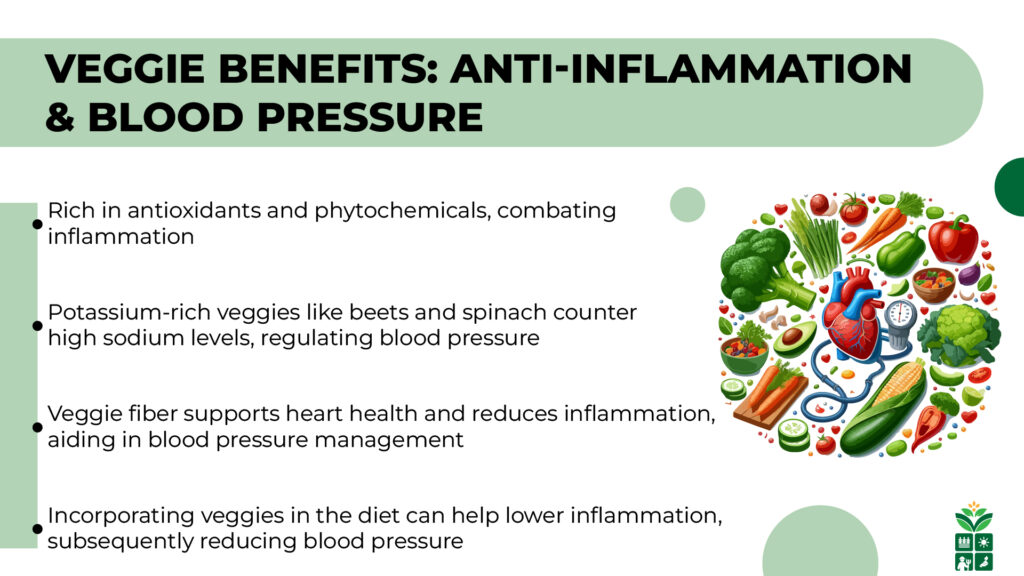
They can be enjoyed roasted, boiled, or grated raw in salads. Beet juice is another popular option that provides a concentrated dose of its anti-inflammatory compounds. By including beets in your meals, you can take advantage of their powerful health benefits and support your body’s fight against chronic inflammation.
Conclusion
Incorporating these anti-inflammatory vegies into your diet can significantly improve your overall health and help combat chronic inflammation. By making a conscious effort to include a variety of these nutrient-rich vegetables in your meals, you can reduce your risk of chronic diseases and promote a healthier, more vibrant life. Whether you follow a Mediterranean diet, vegan and vegetarian diets, or simply aim to eat more fruits and vegetables, these anti-inflammatory foods are essential for maintaining good health.
















